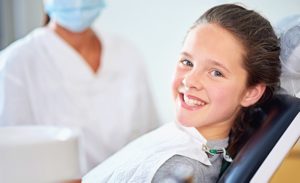INTRO TO ADULT SLEEP
March 27, 2023
 Last week I discussed teenager sleep patterns and issues. This week we start a conversation about sleep for the majority of those reading this column.
Last week I discussed teenager sleep patterns and issues. This week we start a conversation about sleep for the majority of those reading this column.
My body has become accustomed to a certain amount of quality sleep. I have always had difficulty sleeping past a certain time in the morning, regardless of what time I go to bed. On the days over this holiday period that I stayed up later than I normally do, my amount of sleep hours was less and my quality of sleep tended to be lower. This had an impact on the way I felt the next day. Sleep “hygiene”, including regular bedtime, is so important.
There are many reasons for poor quality sleep. Everything from a poor mattress, poor pillow, sleep position, medical issues, diet, alcohol consumption, and work schedule can have an impact on the quality of sleep that we get. Although some people can notice subtle changes in sleep quality, many others do not realize that some of the issues they have routinely can be caused from poor sleep quality.
Sleep plays a vital role in good health and well-being throughout our lives. The way you feel while you’re awake depends in part on what happens while you’re sleeping.
Sleep helps your brain work properly. Studies show that a good night’s sleep improves learning. Studies also show that sleep deficiency may cause you to have trouble making decisions, solving problems, controlling your emotions and behavior, and coping with change.
Sleep plays an important role in your physical health. For example, sleep is involved in healing and repair of your heart and blood vessels. Ongoing sleep deficiency is linked to an increased risk of heart disease, kidney disease, high blood pressure, diabetes, stroke, sexual dysfunction, ADHD, obesity and depression.
Sleep issues can affect the young, the old and everyone in between. The many changes that take place in our bodies as we age can increase the risk of sleep disorders.
Sleep apnea is one of many sleep disorders. It is a serious, potentially life-threatening sleep disorder that affects approximately 18 million Americans. It comes from the Greek meaning of apnea which means “want of breath”. People with sleep apnea have episodes in which they stop breathing for 10 seconds or more during sleep.
People with sleep apnea usually do not remember waking up during the night. Some of the potential problems may include morning headaches, excessive daytime sleepiness, irritability and impaired mental or emotional functioning, excessive snoring, choking/gasping during sleep, insomnia, or awakening with a dry mouth or throat.
Some simple questions to ask yourself are: Have you been told that you snore?
Do you often feel tired, fatigued, or sleepy during daytime?
Has anyone ever told you that you stop breathing while you were asleep – or- Have you ever woken yourself up with a gasp?
Do you have high blood pressure or are you on more than one medication to control high blood pressure?
Is your body mass index greater than 28?
Are you a male with a neck circumference greater than 17 inches or a female greater 16 inches?
If you answered yes to more than two of these questions, or if there is anything else in this column that makes you believe you may not be getting the quality of sleep you would like, please discuss these with your physician.
Dr. St. Clair maintains a private dental practice in Rowley dedicated to health-centered family dentistry. He has a special interest in treating snoring, sleep apnea and TMJ problems. If there are certain topics you would like to see written about or questions you have please email them to him at jpstclair@stclairdmd.com
TEEN SLEEP
March 20, 2023
 When we were all young children, most of us got plenty of sleep, and for that matter, we didn’t think much of it. Our parents told us it was time for bed and we went to bed. We slept until the morning at which time we were woken by our parent’s gentle touch.
When we were all young children, most of us got plenty of sleep, and for that matter, we didn’t think much of it. Our parents told us it was time for bed and we went to bed. We slept until the morning at which time we were woken by our parent’s gentle touch.
As we progressed into our teenage years, our responsibilities increased. This typically led to staying up later and getting up earlier to be able to keep up with these added responsibilities. Today, it seems that getting enough good sleep is even more of a challenge for our teenagers.
One of the contributing factors of this teen sleep crisis is that parents are not as strict with setting rules for sleep as they were when their children were younger. It is not uncommon for teenagers to say to their parents they are going up to their room to do homework and then go to bed.
I recently asked my daughter (a freshman in college) what time she generally “packed it in” and settled down to fall asleep. She told me that after she finishes her homework she will lie in bed and watch something on her laptop until she feels sleepy. This trend is an antithesis to good sleep and one that must be discussed with every teenager by their parents.
Rules about electronics, which include cell phones, computers, games and the television, are especially crucial. In a study done by the National Sleep Foundation, it was determined that teens who have electronic devices on prior to going to sleep, get an average of 30 minutes less sleep. There are other studies that show that the quality of sleep is also greatly affected by this same practice.
Another, more obvious rule that parents must enforce, is the consumption of caffeine at night. Any form of caffeine should not be consumed after dinner. Studies indicate that caffeine in the system accounts for almost a full hour less of quality sleep. We, and our teenagers, cannot afford this deprivation of sleep.
We all start our days at different times. For the teenager, getting up to get ready for school can start pretty early. There is a “start school later” movement that recently received a powerful boost from the Centers of Disease Control and Prevention (CDC). The CDC report showed that teenage students have biologically different sleep patterns and needs than in other stages of life. Starting school a half hour later or more provides the teenager the opportunity to consistently get a better night’s rest.
For the teenager, managing homework and extracurricular activities is also definitely a barrier to sufficient sleep. We as parents must discuss this with our children to provide support with time management. If necessary, we must also not be afraid to discuss this with teachers and coaches if our teenager is struggling to get everything accomplished, thus affecting their sleep patterns.
As adults, many of us have our own routines that could use a revision to get more quality sleep. That is a subject for another time. As parents, it is our responsibility to guide our children to practice good habits. Discussing and enforcing better sleep habits is a gift that keeps on giving.
Dr. St. Clair maintains a private dental practice in Rowley dedicated to health-centered family dentistry. He has a special interest in treating snoring, sleep apnea and TMJ problems. If there are certain topics you would like to see written about or questions you have please email them to him at jpstclair@stclairdmd.com
XYLITOL + DOGS = BAD
March 13, 2023
 Xylitol is a naturally occurring sugar alcohol that is commonly used as a sweetener in many products, such as chewing gum, toothpaste and nasal spray. Xylitol kills bacteria by disrupting their ability to metabolize glucose, which is a necessary process for their survival. When bacteria consume xylitol instead of glucose, they are unable to use it effectively as a source of energy, leading to a depletion of their energy stores and eventual death.
Xylitol is a naturally occurring sugar alcohol that is commonly used as a sweetener in many products, such as chewing gum, toothpaste and nasal spray. Xylitol kills bacteria by disrupting their ability to metabolize glucose, which is a necessary process for their survival. When bacteria consume xylitol instead of glucose, they are unable to use it effectively as a source of energy, leading to a depletion of their energy stores and eventual death.
The dental benefits of xylitol have been known since the 1970’s. Xylitol is not metabolized by the decay-causing bacteria Streptococcus mutans (S. mutans), making it non-acidogenic and thus noncariogenic (not decay causing). Studies have also indicated xylitol decreases the levels of S. mutans in both plaque and saliva. As a result, patients who use xylitol have demonstrated a reduction in decay.
Xylitol is slowly absorbed by the human intestines; as a result, it has minimal side effects on humans. There are some minor side effects, mainly diarrhea, although this generally occurs after ingesting large amounts xylitol (four to five times the recommended amount for cavity prevention). A 1982 study suggested that the body can adapt to higher dosages of xylitol and that symptoms can subside as the body’s tolerance increases. However, even in small quantities, xylitol is toxic to dogs.
While the dental community embraces xylitol for its cavity prevention, most people, including dental professionals, are unaware of its toxic potential to dogs. While xylitol has little effect on insulin production in humans, dogs can experience rapid and severe increase in insulin production after just a small amount of xylitol ingestion. A dog that ingests a xylitol equivalent of three to four pieces of gum is at risk for hepatic (liver) failure and necrosis (tissue death).
Dogs tend to be scavengers by nature and their likelihood of encountering potentially toxic substances in and around the house is common. The ASPCA web site lists a multitude of substances, many of which are harmless to humans but potentially dangerous to dogs. Chocolate, grapes, raisins, avocado, onion, and citrus fruits make the list. However, xylitol is unique in that it is contained within foods; as a result, consumers may not even be aware that a product or food item contains xylitol.
For dogs suspected of ingesting xylitol, early intervention is paramount. Prompt medical treatment for uncomplicated xylitol-related hypoglycemia can yield a good prognosis. Xylitol hepatic toxicosis yields a much graver prognosis.
While veterinarians have been aware of the potential danger of xylitol to dogs for several years, that awareness has escaped most of the dental community – and the general public. This has become a more significant issue as more dental professionals promote products that contain xylitol for its human benefits.
It is important for dog owners to know the different foods and products, such as xylitol, that can be harmful to their pooches. Make sure to keep these items out of a dog’s reach – and that includes the garbage. If you suspect ingestion of any of these foods, including xylitol, contact your veterinarian immediately.
Dr. St. Clair maintains a private dental practice in Rowley dedicated to health-centered family dentistry. He has a special interest in treating snoring, sleep apnea and TMJ problems. If there are certain topics you would like to see written about or questions you have please email them to him at jpstclair@stclairdmd.com
WHAT GOES INTO A DENTURE?
March 6, 2023
 There aren’t too many people who really want a denture, but for many people, this is a viable way to replace loss of teeth. Regardless if it is replacing one or all the teeth, it is something removable; that is, the patient takes it in and out of their mouth.
There aren’t too many people who really want a denture, but for many people, this is a viable way to replace loss of teeth. Regardless if it is replacing one or all the teeth, it is something removable; that is, the patient takes it in and out of their mouth.
As with many things in life, there can be a significant difference in the quality, appearance and functionality between different dentures. Here’s what Wikipedia says about making dentures:
“The fabrication of a set of complete dentures is a challenge for any denturist, including those who are experienced. There are many axioms in the production of dentures that must be understood, of which ignorance of one axiom can lead to failure of the denture case.
One of the most critical aspects of dentures is that the impression of the denture must be perfectly made and used with perfect technique to make a model of the patient’s edentulous (toothless) gums. The denturist must use a process called border molding to ensure that the denture flanges are properly extended. An endless array of never-ending problems with denture may occur if the final impression of the denture is not made properly. It takes considerable patience and experience for a denturist to know how to make a denture, and for this reason it may be in the patient’s best interest to seek a specialist, either a Denturist or a Prosthodontist, to make the denture. A general dentist may do a good job, but only if he or she is meticulous and usually he or she must be experienced.”
It is true that fabrication of dentures can be challenging and requires a strict protocol. If the techniques taught in dental school (a dental student usually makes about 2 or 3 dentures) are the only techniques used, the outcome will be mediocre at best. People may be able to get by with a $395 denture advertised on television. You can also drive around on 4 flat tires for a while.
The impression is the key for a successful denture. However, simply taking an impression of the tissues in the oral cavity is not enough to produce a high quality, precision fitting prosthesis. Using a technique called a functional impression produces a far superior result over conventional techniques. The functional impression takes a couple more visits than a traditional impression, but it is much more accurate.
Other differences of a custom denture vs. a conventional denture are the materials and laboratories used to produce the prosthesis. The quality of the materials, including the teeth themselves, play a huge role in producing a denture that not only fits meticulously, but also looks natural and life-like. Poorly made dentures are often easy to identify in normal conversation.
Staining of the “gum” portion of the denture, by a laboratory technician trained and qualified to do so, adds an even more life-like appearance, which far surpasses any conventional technique. A denture made with this technique rarely needs any adjustments, and will fit well for years.
Dental implants can be used to secure lower dentures, or eliminate the palatal coverage of an upper denture. These are the two main issues that patients have with dentures: the lower denture flops around, and the upper denture covers the palate, which decreases enjoyment of eating.
Poorly fitting dentures can decrease quality of life, cause discomfort, difficulty eating, speech problems, oral sores, bone loss and social anxiety. It makes a world of difference to have a well-made denture.
Dr. St. Clair maintains a private dental practice in Rowley dedicated to health-centered family dentistry. He has a special interest in treating snoring, sleep apnea and TMJ problems. If there are certain topics you would like to see written about or questions you have please email them to him at jpstclair@stclairdmd.com







